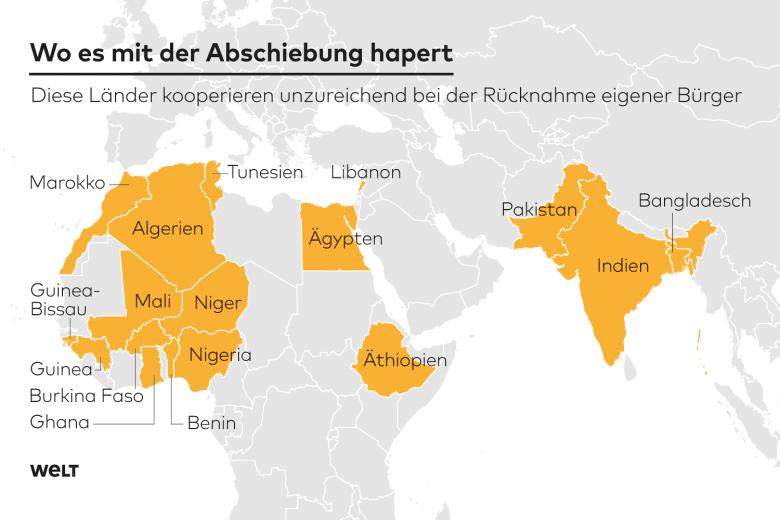The number of migrants arriving in Germany is growing. With it, also the number of their expulsions.
Following the public order problems arising from migration, the difficulties in its management and the blazing controversy among the public, the policies of Angela Merkel are gradually changing. Not total and indiscriminate acceptance, but an incentive to “voluntary repatriation” and expulsion of those who are not eligible to stay in the country. The number of those who return to their land of origin is still very low compared to those arriving – in 2015 were repatriated only 20,914 people out of the about 200 thousand which have been declared eligible – and the plan of the Berlin government is to proceed more quickly with the expulsions. But encountering different problems.
The first of these is the reaction of some of the countries that should take back their nationals. The countries that should take back the people expelled are hampering strongly against this new deal. These are Asian and African countries: Egypt, Algeria, Morocco, Ethiopia, Benin, Burkina Faso, Ghana, Guinea, Guinea Bissau, Mali, Niger, Nigeria, Tunisia, Bangladesh, India, Lebanon and Pakistan. The governments of these countries refuse to take back the individuals illegally emigrated as refugees and have been called “problematic” by the German Chancellery, which then sent them a reminder and a reproach.
This letter aims to emphasize to the various recipient governments about the difficulties that Germany is meeting on migratory matters and calls for mutual cooperation to solve the problem. The hope is to get them to accept somehow the repatriation of their citizens, to develop joint action to reduce the flow of migration.
The mission, however, doesn’t appear be easy. Rather. These countries, in fact, for years have created problems to the German diplomacy, as reported by Die Welt. The line of the German government is far from the positions of many of these countries, especially North Africans. In 2014, for example, the governments of these countries accept the repatriation of only 3 people out of a total of 580 deportation decrees issued by Berlin. This is why the German Foreign Ministry does not rule out using the threat of closure of diplomatic relations with some of these countries. Idea, this, which is probably just an unattainable threat aimed at bringing the parties to come closer to their positions. But that shows how the tensions are still far from being resolved.
Source: Il Giornale
